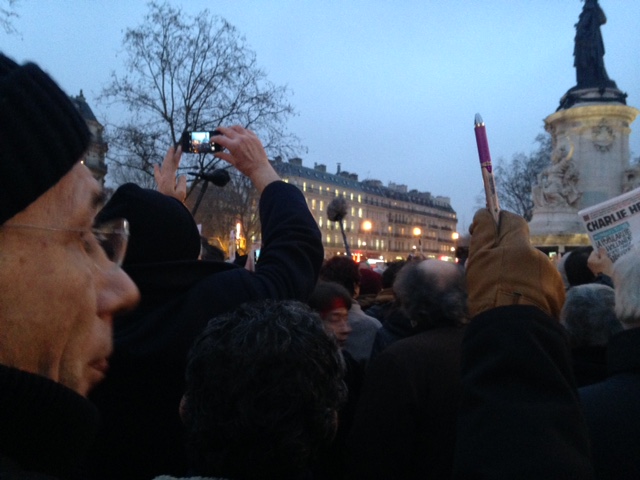If anything allows the press to say news is a science, it is all in the art of rigorous verification before publication. It is what has made American journalism so dependable.
US reporters know what they write can adversely affect people’s lives. This is why they make sure 100% of what they write is 100% correct …….at least when the consequences of what they publish are to be felt in the United States. But an American-centric press seems to lower its standards if the consequences will be felt by others.
Two recent cases demonstrate these double standards in verification by American reporters. When Time magazine ran the story on the Koran being flushed down the toilet at Gitmo, more than a dozen people were killed in rioting in Afghanistan. The CNN – Time Koran-in-the-toilet-story led to violent demonstrations in other countries as well. The information came from a “reliable” source but was not verified and Time has since, and once again, said their Mia Culpa. (Remember the June 15, 1999 ‘Sarin Gas in Laos’ debacle?) *
You would still have had the riots had the information been verified. The question is not so much of the consequences of the message the messenger brings as it is one of making sure that message is accurate.
The second case is in the June 25th issue of The New Yorker. Seymour Hersh ran an article on General Antonio Taguba’s Army investigation into Abu Ghraib, extraordinary rendition and secret CIA prisons. One sentence referred to a secret prison in Mauritania according to a “Former senior intelligence official and a government consultant”. That line shook the newly and first democratically elected government to its foundations.
I was in Nouakchott at the time and faced an understandably angry Chargé d’Affaires at the US Embassy. “How can you write such things without verifying them first?” he asked. Although I assured him Seymour Hersh is a serious reporter and, in the words of A.J. Leibling, “a careful reporter”, I must agree with the Chargé.
I doubt this prison really exists. Although Mauritania is big in size it is small in people. I find it hard to imagine Americans coming in and out and running a prison anywhere without someone’s cousin telling someone’s brother and within a week the whole country knowing about it. Such is the nature of nomadic people who live on an oral tradition and suffer high illiteracy.
The news made the front pages in Nouakchott at a time when the government was trying Salafist Muslim extremists and in a country with a nascent Islamic Movement. Mauritania’s new democracy is fragile and the US has been working hard to help build a moderate Islamic state which will help in the fight against al Qaeda.
Obviously, further verification was needed; the kind of verification that withheld articles on Abu Ghraib for a year.
Stories of torture and murder were coming out of Abu Ghraib as early as the summer of 2003. The sources (i.e. victims) were talking. There were a few reports buried deeply inside thick papers but no major news story.
The torture and murder story was so powerful and would shake America so deeply, that we had to be absolutely ready to prove every line. That proof came with the photos and Seymour Hersh’s article in The New Yorker in April 2004.
We all know how the story affected Americans. Nouakchott was no less put aback by Hersh’s one line on the secret prison. Did they not deserve the same kind of verification before printing the story?
How much hear-say can we still print after the fiasco of the run-up to the invasion of Iraq, even when our sources are reliable? I believe we do have to publish news we know to be true but lack proof and I believe we need to use anonymous sources to protect whistle-blowers.
Another question raised, especially in Europe, is whether you should run stories you know are true but which could have adverse effects. James Gordon Bennett said in 1836: “I tell the honest truth in my paper, and I leave the consequences to God.” That spirit, I believe is still relevant today
.—————————
*This is worth a follow up story because nobody can really say the attack did not happen but CNN – Time retracted the story because of sloppy reporting. In the process the real story over a special unit designed to kill American G-I deserters fighting for the Vietnamese was completely overlooked.
